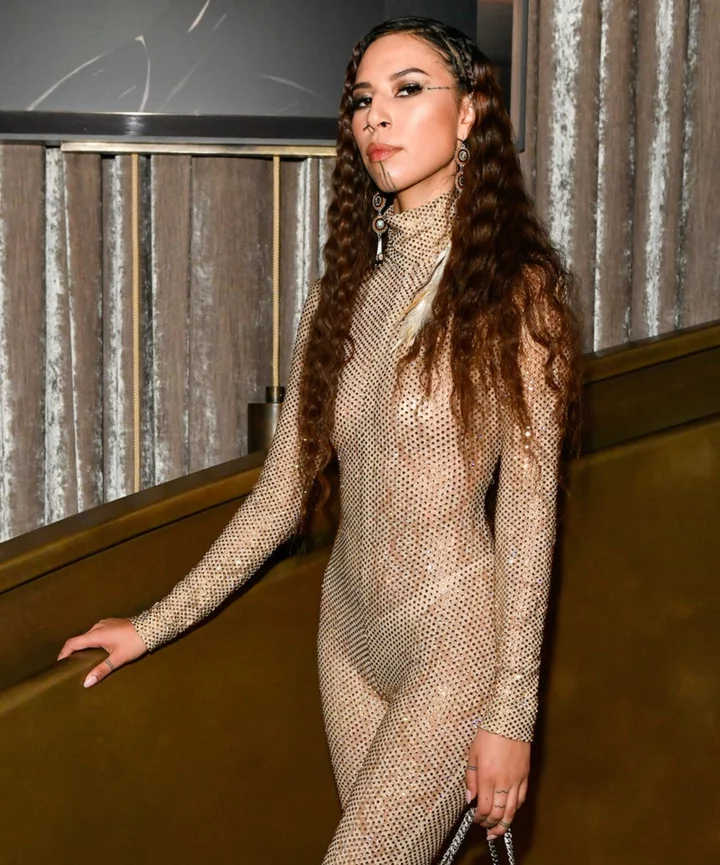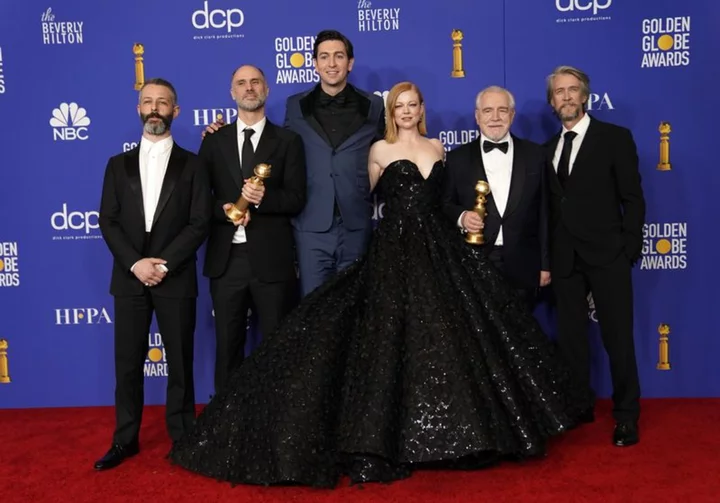So much of fashion right now feels disappointing. After years filled with promising pushes for progress — from body positivity to racial justice and wider representation — the post-lockdown industry has failed to demonstrate any real change. There’s been a notable lack of plus-size representation in recent seasons, while major luxury houses continue to be led by white men.
But people like model and activist Quannah Chasinghorse make even the most jaded fashion person think there’s hope.
Since she first debuted in the modeling scene, Chasinghorse, who hails from the Hän Gwich’in and Oglala Lakota Indigenous tribes and regularly walks for the likes of Chanel and Chloé, has made it her mission to bring activism to fashion.
“I’ve been in advocacy, I’ve been doing community work before I even started modeling and I wanted to be able to do both,” Chasinghorse, who has graced the covers of magazines like Vogue Mexico, Porter, and Elle, tells Refinery29. “You can show up for community and do amazing community work, and you can also be part of an industry that isn’t the best, but you can create change.” Whether that is partnering with Calvin Klein for a youth voting campaign and attending the Met Gala wearing Indigenous-made jewelry or meeting with members of Congress to ensure Native land protection, she’s led her path in modeling with the motto: “If you want to work with me, you have to work with all of me.”
That includes her most recent partnership: her first-ever design collaboration with Golden Goose, which includes a limited-edition sneaker, as well as a T-shirt — featuring the slogan “We Are Nature” — and a framed poem authored by Chasinghorse, available now. “They’ve been very willing to be really authentic with who I am as a person,” she says. “I wanted to be able to incorporate my culture and what I do as an advocate.”
That translated to choosing bio-based and upcycled materials, as well as orange and turquoise shades on the laces that, according to Chasinghorse, “tie into the Lakota star and the Lakota sun,” which she says is a play on the signature Golden Goose star. “When people see it, they’re just going to see all the colors and they may not know or understand the meaning, but I feel like it’s one of those really cool things where once you look into it, you learn so much from it,” she adds.
The sneakers also feature the slogan “Protect Nature” in the back, embroidered in rainbow-colored threads. It’s a subtle yet powerful detail that Chasinghorse says is a nod to her identity as a two spirit person, an umbrella term that acknowledges varied gender identities present among Indigenous North American peoples and that is often included in the acronym LGBTQIA+: “I just think it’s something that I shouldn’t have to announce to the world, but, as someone that is two spirit, I wanted people to feel seen because that is something that is very sacred in our communities,” she says.
While Chasinghorse may have dipped into design with this partnership, she’s still strongly focused on her advocacy. “I feel it’s so important to have Indigenous voices in every space, at every table for that representation, but also so that people understand how to work with Indigenous people,” she says. Recently, she was featured in the National Geographic series, titled, “Life Below Zero: First Alaskans,” in which she and her mom Jody Potts-Joseph dove into how they preserve native cultural practices that have been eroded through colonization. Chasinghorse has also worked with organizations like the National Indigenous Women’s Resource Center, raising awareness about the crisis of missing and murdered Indigenous women, and in campaigns like #StopWillow, which is trying to pause a decades-long oil drilling project by Conocophillips, Alaska’s largest crude oil producer.
“The only way to change and to move forward is to have those uncomfortable conversations,” Chasinghorse says. “That’s why I take my job so seriously, not just as a model, but as an advocate, and it makes me feel good because I know that at the end of the day, it brings back more awareness to our community.”
At Refinery29, we’re here to help you navigate this overwhelming world of stuff. All of our market picks are independently selected and curated by the editorial team. If you buy something we link to on our site, Refinery29 may earn commission.









